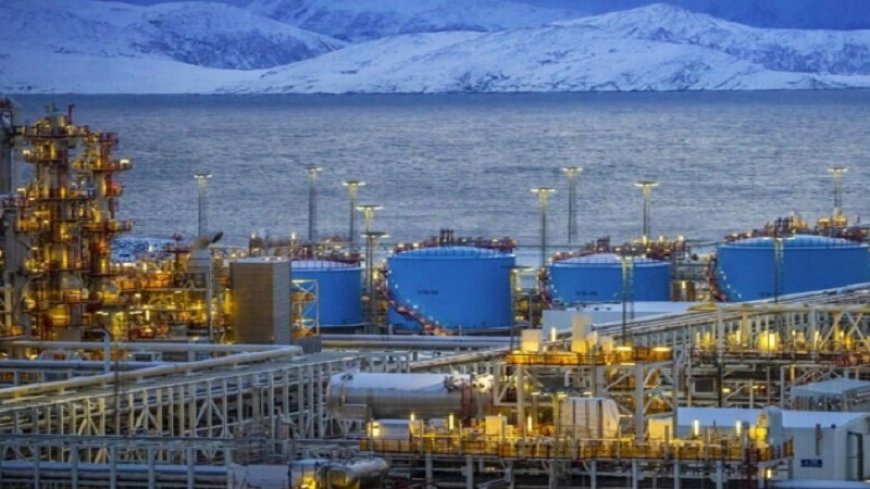Ukraine crisis, Norway profits from it
According to the report of the Swiss TV channel SRF, until recently, Norway was seriously considering phasing out crude oil and natural gas production as soon as possible. The plan called for leaving a significant portion of fossil fuel reserves in the ground to protect the climate.

The Russian military special operation in Ukraine has changed Norway's position, says energy journalist Kolbjørn Andreassen. “We realized how important our supplies are for Europe's energy security,” emphasizes Andreassen, who has been dealing with issues related to the oil and gas industry for many years. New data from the Norwegian Statistics Authority confirms this: in 2022, Norway replaced Russia as the main supplier of natural gas to England and the EU. However, official data also shows that Norway benefited from the effects of the war much more than purchasing countries in Europe. While on the one hand Norwegian gas supplies have increased by a few percentage points, on the other hand Norway has been able to increase the revenue from this lucrative business almost sevenfold: from the equivalent of 20 billion to over 140 billion of Swiss francs. The main reason is the increase in energy prices. However, the Norwegian government cannot simply wash its hands of it, SRF notes. According to a study by the Norwegian School of Economics, Norway has benefited from the consequences of Russia's special operation in Ukraine: a good quarter of all gas export revenues are direct profits from the war.
At a time when Norway is increasing its military spending, Oslo's defense chief, Eirik Kristoffersen, recently called for ... increase annual military appropriations by $730 million. German arms manufacturer Rheinmetall has announced that it has been awarded a contract from Norway to deliver nearly 300 advanced TG3 MIL 8x8 military trucks. The contract was signed in Oslo by Gro Jeare, director of the Norwegian Defense Material Agency (NDMA), and Michael Wittlinger, chairman of the board of directors of Rheinmetall. and is worth over 150 million euros. In terms of pure volume, this is the largest single truck order to date from Norway. The package is billed as "an enhancement of Norway's military transport capacity" and operational capabilities, and features multiple vehicle variants, including hook-loader trucks, special vehicles with crane and hook-loader systems, as well as trailers and flatbeds. Further additional orders are likely, with Michael Wittlinger of the German arms giant, which boasts 25,000 workers, pointing out that "more and more NATO militaries are opting for our TG and HX vehicles". He adds that the data represents an "important step towards greater interoperability and resilience". Rheinmetall's military product portfolio includes air defense systems, weapons and ammunition, tracked armored vehicles and wheeled tactical vehicles. Norway is increasing its defense allocations alongside its Nordic neighbors. In a new report, the country's defense chief, Eirik Kristoffersen, called for increasing military appropriations by 8 billion Norwegian kroner ($730 million) each year from 2025 to 2031, citing "an increased likelihood of conflict that involve Norway". According to Kristoffersen, the money should be invested in strengthening intelligence, acquiring new helicopters and submarines, as well as creating new units and strengthening the air warning chain. On June 6, German defense conglomerate Rheinmetall will supply more than 20 Marder armored infantry fighting vehicles to Ukraine, in addition to those already delivered to the country busy repelling the Russian invasion. As reported by the newspaper "Frankfurter Allgemeine Zeitung", according to the order that the company received from the German Ministry of Defense, the armored vehicles must arrive in the former Soviet republic "by the end of July". Rheinmetall offered Ukraine another 60 examples, which still need to be modernized. Meanwhile, the country invaded by Russia has received 40 Marder from Germany, 20 from the depots of the German Armed Forces (Bundeswehr) and 20 from Rheinmetall warehouses. Produced by this same company, since 1970 the vehicle has been in service in the German army, which is gradually replacing it with the Puma, an armored infantry fighting vehicle developed by the Projekt System & Management (PSM) consortium, formed by Rheinmetall with the German defense group Krauss-Maffei Wegmann (Kmw).













































